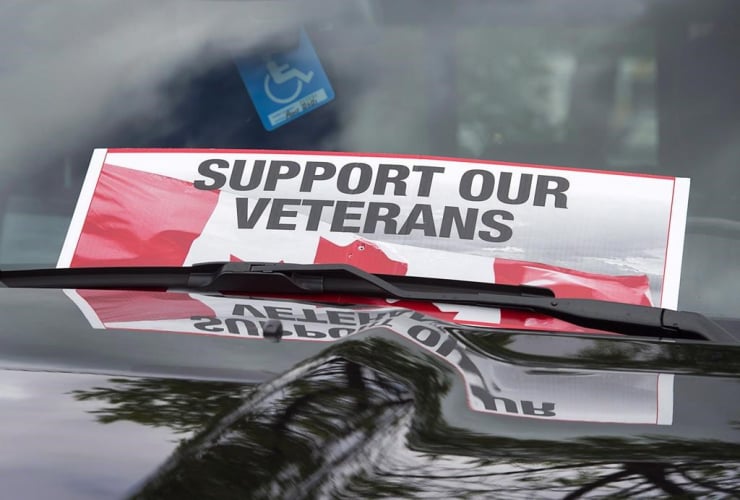Case managers assigned to assist Canada's most severely disabled veterans say they are being forced to spend more time filling out paperwork than helping former service members.
The complaint is in an internal review by Veterans Affairs Canada, which found most case managers spend more than half of each working day filling out required forms and reports — with one in three spending 70 per cent of their time on such tasks.
The findings follow long-standing concerns and anger about a shortage of case workers, whose jobs include guiding injured veterans to the services and benefits they need to transition back to civilian life after leaving the military.
The importance of case managers was confirmed by the internal review, whose findings were recently published online, as most veterans were found to have seen significant improvements in their physical and mental health when they had case managers.
Veterans Affairs employs about 400 case workers, who help roughly 13,000 veterans each year.
Yet the "administrative-related burden" and "complicated or unnecessary business practices" placed on case managers was seen as a significant obstacle to helping veterans, including an onerous amount of paperwork that ties up much of their time.
In fact, the review found that case managers at Veterans Affairs were far more likely to complain that the quality of their work was suffering because of unnecessary paperwork and red tape than people with similar jobs at Correctional Services Canada and the Department of National Defence.
One of the key problems identified by case managers was a report each was required to fill out for each of the veterans they help, every 90 days. While the report is supposed to help case managers identify their patients' needs, most described it as a huge waste of time.
"Case managers reported that they should be spending significantly less time documenting than what it occurring," the report says, adding the required report was considered "too subjective and ... not valuable for case managers to be spending their time on it."
Veterans Affairs spokesman Josh Buekert said in an email Friday that the department recently eliminated the need for case managers to fill out the report every 90 days and is working on other initiatives to ease "some of the administrative burden without impacting veterans."
Yet paperwork was only part of the problem identified by case managers, as 76 per cent reported having too heavy a caseload.
That was despite the review having found there were certain populations falling through the cracks when it came to being assigned case managers, including homeless veterans, those with mental-health conditions and those who served as peacekeepers in the 1970s and 1980s.
The federal Liberals promised during the last election campaign to reduce the ratio of veterans to assigned to each case manager from a high of 40-to-1 under Stephen Harper's Conservatives to 25-to-1 by hiring more staff.
Yet while the government has more than doubled the number of case managers at Veterans Affairs since 2015, the case manager-to-veteran ratio remains around 33-to-1, partly thanks to a large influx of former service members requiring such services in recent years.
The review also found that while as many as 800 of the roughly 13,000 veterans currently assigned case managers no longer needed such service, many case managers reported extreme difficulty in getting some veterans to move to a lower level of support.
Several reasons were provided, including — again — the amount of documentation and time required to release a veteran from care.
Many veterans feared losing their main point of contact with Veterans Affairs and there was a "financial disincentive" to leaving as veterans receiving such specialized care are eligible for additional financial assistance.
Veterans Affairs is looking at ways to transition veterans who no longer need case management to a different level of support, Buekert said, adding the aim is to "allow case managers and veterans to feel more supported and secure through the disengagement process."
But such efforts have sparked anger in the past, with the federal government accused earlier this year of letting veterans down by directing a number to online services and redirecting supposedly less-severe cases to "service-delivery agents" instead of case managers.
Some veterans affected by the change have complained such service-delivery agents are poorly trained and provide far less support than their former case managers.





Comments